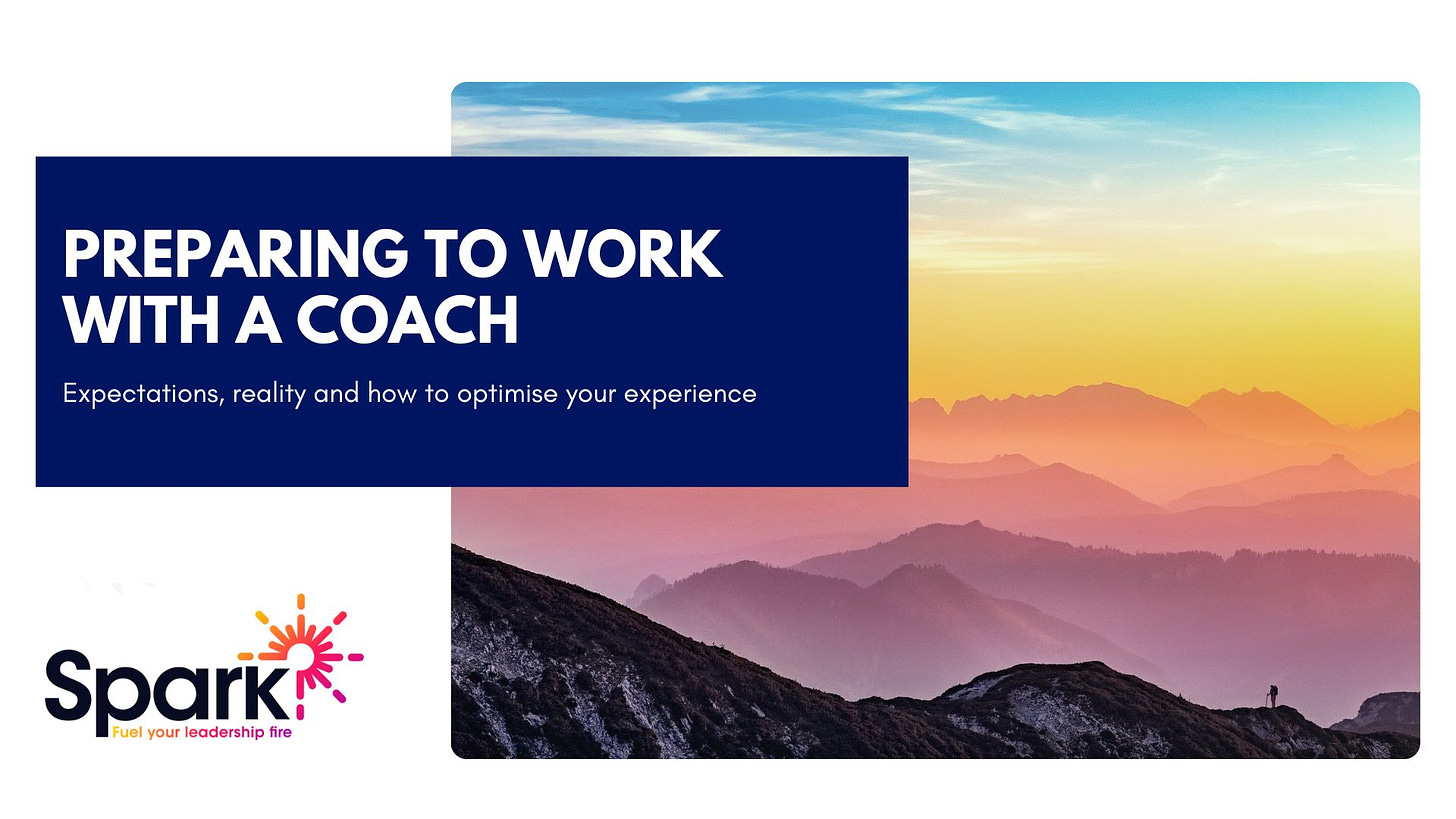For leaders who haven’t worked with a coach before, the experience can be daunting.
Coaching is a unique tool that mixes action with deep thinking. And for dynamic fast paced leaders, it creates a quiet space in your hectic world so you can think hard about the challenges you face, the kind of leader you want to be and the life you're crafting for yourself.
If you’ve ever felt like you’re operating on autopilot, coaching is like hitting the pause button and asking yourself “could there be a different, better way?”.
The challenge is that the reality of what happens during a coaching session isn’t easily defined in a single sentence.
And that is part of the magic.
Because coaching is a special kind of partnership that focusses only on helping you succeed.
It is one of the most personal forms of learning you can get.
Every coaching relationship is unique. Coaching is an alliance, and the way that coaches and clients work is designed in partnership, and like all partnerships it will evolve as your relationship grows and as you make progress.
No two coaching relationships will ever look exactly the same. Your coaching might be predominantly driven by deep conversation, but at times we might work together in brainstorming, role playing, scenario planning, practicing specific conversations, or feedback.
And that means it might be difficult to know what to expect beforehand.
However there some good practices that can help you get the most out of the experience.
So if you are about to enter into a coaching relationship, or are thinking of working with a coach, read on.
Focus: Coaching is future focussed and goal orientated, at both a macro and micro level. So if you’re preparing to work with a coach, know what you are working towards.
Your overarching goal might be to hit the ground running and perform well in a new c-suite role, it might be to lead a transformation in your business, or it might be to navigate a team through growth.
Your goals are your own, and they will underpin what you focus on throughout the coaching relationship and also the focus of each session.
Disarm: A coach is unique because they operate only from a position of wanting you to succeed. They have no bias, no personal opinion about what you should and shouldn’t do, they have no vested interest. In a world where it feels like everyone has an opinion, this can be refreshing.
But it can also be uncomfortable; because the focus is entirely on you. You are under the spotlight, and your coach is lifting up the covers to help you find out what’s underneath the surface.
Be open. But don’t feel like getting deep and emotional is a pre-requisite right off the bat. It isn’t. Some coaches specialise in going deep and connecting to your emotional core, but others are themselves stretched by continuous intense emotional exploration. That doesn’t mean that your conversation won’t take you there at some point, but it isn’t a requirement.
Be honest: This one is though. Your coach is there to genuinely help you so don’t be untruthful. Coaches lead with curiosity and ask a lot of questions, and some of them will naturally feel uncomfortable - the coaches agenda is to help you step outside of your comfort zone. They’re not doing this to make you squirm, but to help you grow. But it is absolutely OK to say ‘I don’t want to go there’.
From a coaches perspective nothing is off limits, the only limits are set by you, the client.
Think: Don’t expect to be told what to do; coaches are not consultants or teachers. And nor do they have a magic crystal ball. Instead they believe that you are the expert of your own life and that you have the resources and skills to tackle what lies ahead.
They will act as a thinking partner and puzzle solver, asking you questions and challenging you, pushing yourself to cut through the noise and help find the way forward that you’ve been looking for.
Prepare: Before you dive into a coaching session, take a breath and make sure you are in the right headspace. Find a quiet spot, maybe take a walk or listen to some music for a few minutes. Think of it like stretching before a big game. Switch your notifications off, close your office door and settle in.
Do the work: Coaching is far more than the time that you and your coach spend together. In fact, much of the work that you do will happen outside your coaching sessions and it is important you know and plan for that.
Your coach will help keep you accountable, but if you are deadline driven plan with your coach techniques to maintain your focus and keep momentum up. And the adage ‘you get out what you put in’ has never been more true.
Learn: Setbacks and failures pave the way for success and are an essential part of the process. When you work with a coach you join forces to help you tackle what’s in front of you, and succeed. But you must be ready to risk and accept failure, and learn from it. Coaching is about challenging yourself, learning and stepping outside your comfort zone, with a champion, challenger and confidant alongside you all the way.
For more, my fellow Executive Coach and friend Elisabeth Hayes shared four specific ways to get more from your coaching in Smartbrief:
Related Reading:
If you’ve enjoyed this week’s issue please hit the 🤍 button below so that more leaders can find it. Meantime if you haven’t already, you can subscribe to receive the next issue straight to your inbox.









